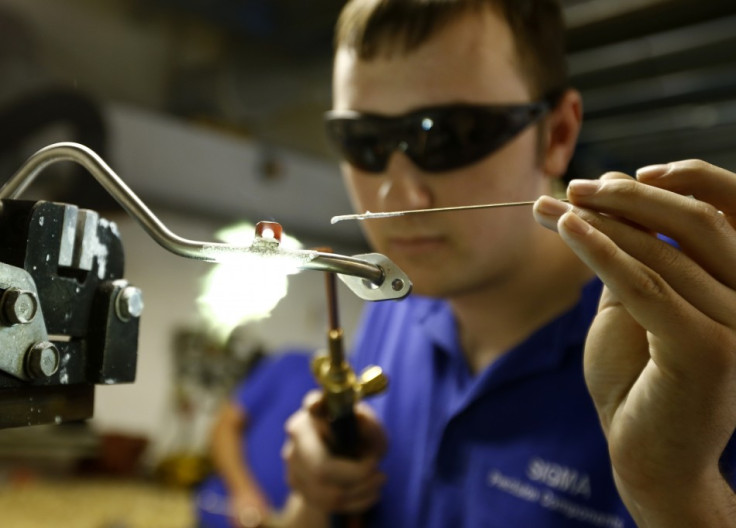UK Factory May Activity Grows At Fastest Pace in 14 Months

British manufacturing activity grew at its fastest pace in 14 months in May, buoyed by higher domestic demand and a slight increase in export orders, hinting that Europe's third biggest economy is recovering.
The purchasing managers index, which polls purchases made by factory managers, rose to a seasonally adjusted 51.3 in May, up from a revised 50.2 in April, 2013, says a report by survey compiler Markit.
The reading for the month of May is the highest since March 2012, and has remained above the neutral 50.0 mark for the second straight month, Markit says. A reading below 50.0 would have indicated that manufacturing activity had contracted, pointing to a slowdown.
Job creation was recorded for the first time in four months in May.
The expansion of manufacturing output was broad-based in May, with growth registered by the consumer, intermediate and investment goods sectors, but the strongest performance was seen at consumer goods producers.
"The investment goods sector boasted a 14-month highin output growth and intermediate goods hit a 26-month high in new business, confirming the brighter outlook," David Noble, Chief Executive Officer at the Chartered Institute of Purchasing & Supply, was quoted as saying in the Markit report.
Input prices fell for the second straight month while Incoming new orders rose for the third consecutive month in May, led by a solid improvement in domestic market conditions, Markit says. Exporters benefited from a higher demand in North America, East Asia, Russia, Germany and France.
The new orders-to-finished goods inventory ratio shot up to a 27-month high, suggesting that production at factories across the UK might have to be increased in the coming months to reduce the pressure on stocks of finished goods
"Output is also likely to be raised further in the coming months, as firms refill warehouses after stronger than expected demand has led to a sharp depletion in finished goods stocks. The tentative return to job creation in the sector in May also suggests that manufacturers are becoming more confident of the outlook.
"Following the solid growth registered by the service sector in the first quarter GDP numbers, signs that the manufacturing sector is also recovering will add further weight to the Bank of England's decision to wait-and-see before adding to its accommodative policy stance," said Markit's senior economist Rob Dobson.
© Copyright IBTimes 2024. All rights reserved.























